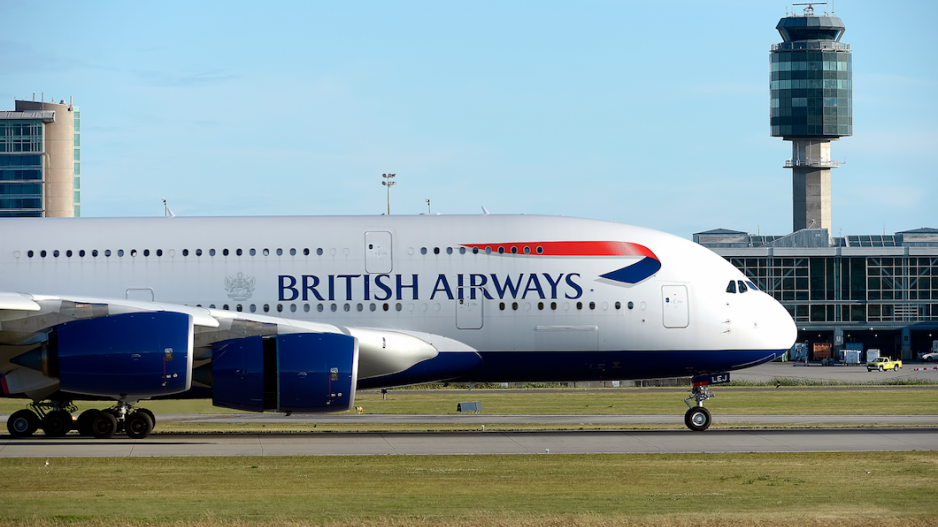Canada should sell its eight largest airports to raise between $7.2 billion and $16.6 billion for infrastructure investments, according to a February 7 report from Canadian think-tank C.D. Howe Institute.
The study rejects arguments from airport and airline executives that privatizing Canadian airports will raise airfares and reduce services for passengers. Instead, it argues the reverse.
The report also comes as the federal government explores different ways to run its airports.
Last September, the Justin Trudeau government hired Credit Suisse AG to investigate various options for privatizing major Canadian airports.
In November, it announced the hiring of Morgan Stanley Canada Ltd. to study potentially privatizing 18 Canadian ports.
Transportation Minister Marc Garneau stressed in a January 25 speech to the Greater Vancouver Board of Trade (GVBOT) that the review into privatizing airports was “just a new government exploring different possibilities” and was not a “done deal.”
The C.D. Howe report’s author, Harvard University MBA student Steven Robins, told Business in Vancouver that several elements of the current system, under which the federal government owns airport land and leases sites to non-profit authorities, create higher costs for travellers.
Transport Canada charges progressive ground rents to airport authorities that range up to 12% of revenue. The formula, Robins argued, creates a disincentive for airport authorities to invest in low-margin businesses such as retail or services for passengers.
If the government instead taxed an airport authority’s profit, Robins said, those organizations would be more willing to invest in initiatives that generated a lot more revenue even if there were little profit.
The result would be more retail options for travellers, Robins said.
But Vancouver Airport Authority CEO Craig Richmond rejected Robins’ argument that airport authorities have a “disincentive” to invest in retail.
According to a 2016 ranking by Airport Revenue News, Vancouver International Airport (YVR), which has more than 170 shops and 186,000 square feet of retail space, has the highest rate of concession sales ($22.14 per passenger) of all airports in North America.
The airport authority also partnered with European mall developer McArthurGlen Group to build a 240,000-square-foot outlet mall on Sea Island. A Phase 2 for that mall is planned.
The airport authority through the years has also maintained that YVR has the highest square footage of retail space per passenger among major North American airports.
However, Robins said YVR’s high retail sales are unlike those at most Canadian airports and relate to the airport’s status as an international hub for travel to Asia.
Robins also raised concerns over the length of leases Canadian airports have with the federal government. Typical leases are for 60 years with a potential 20-year extension.
When airports are close to the end of their leases, Robins said, they are forced to amortize investments over a shorter time period, resulting in higher debt costs.
A third problem that Robins outlined relates to how airport authorities are non-share, non-profit corporations and are therefore unable to issue equity to generate financing. Airport authorities must therefore rely on profits or debt markets to finance expansions, which potentially delays needed initiatives.
In a January 18 speech to the GVBOT, Richmond said the airport authority is “not in favour of [privatization] because, quite frankly, the price of everything would go up.”
“If we have a private operator, two things will happen,” he said. “To make their return, the prices will go up, and it will no longer be a community-run airport. It will be run out of New York, London and Toronto.”
Prices would go up, Richmond said, because the airport’s private owner would take some profit out to distribute to shareholders. All of YVR’s profit is currently pumped back into the airport to help finance projects such as the planned $5.6 billion expansion over the next 20 years.
Richmond said the airport’s retail goods prices and airport improvement fee would also rise faster under a private operator because Canadian airports carry a lot of debt.
Robins’ report pins that debt total at $16.1 billion. If airports are sold to private companies, Richmond said, that debt would have to be factored into the sale price of the assets.
Robins estimated that selling YVR could net between $3.2 billion and $4.5 billion, after what he calculated to be the airport’s more than $2.2 billion in debt is subtracted. YVR disputes that debt estimate and calculates its own debt at $639 million.
Richmond said that if private companies do not also carry that debt, they will have to finance the debt by raising prices on subleases, which will drive up prices for travellers.
Robins countered that competition will naturally deter undue price hikes and that the federal government could have a price watchdog to ensure that private operators do not gouge customers.
The federal government’s deficit for the 2016-17 fiscal year is projected to be around $34 billion even though during the 2015 election campaign, Prime Minister Justin Trudeau promised to keep budget deficits to a maximum of $10 billion.
Selling the airports would therefore provide a quick financial gain with potentially little political backlash. However, Ottawa would no longer collect $305 million in annual airport rents, although it would collect tens of millions of dollars in new federal tax.•




